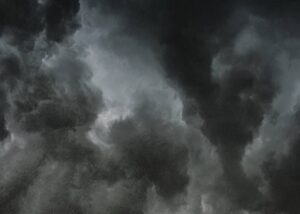Why do some Shaykhs or Pirs ask for your name and your mother’s name? Is that allowed in Islam?
Quran
Hadith
Islamic Text
بِسْمِ اللَّهِ الرَّحْمَنِ الرَّحِيمِ
In the Name of Allah Most Merciful Most Kind
Short Answer
The practice of Shaykhs or Pirs asking for your name and your mother’s name has no evidence from Quran and Sunnah. Therefore, it cannot be considered an Islamic practice. This is because Islamic religious or spiritual practices must necessarily be evidenced from Quran and Sunnah. Further, some scholars of Ahl al-Sunnah connected this practice to astrology, which is clearly prohibited.
Hadith
عَنْ زَيْدِ بْنِ خَالِدٍ الجُهَنِيِّ، أَنَّهُ قَالَ: صَلَّى لَنَا رَسُولُ اللَّهِ صَلَّى اللهُ عَلَيْهِ وَسَلَّمَ صَلاَةَ الصُّبْحِ بِالحُدَيْبِيَةِ عَلَى إِثْرِ سَمَاءٍ كَانَتْ مِنَ اللَّيْلَةِ، فَلَمَّا انْصَرَفَ النَّبِيُّ صَلَّى اللهُ عَلَيْهِ وَسَلَّمَ أَقْبَلَ عَلَى النَّاسِ، فَقَالَ: هَلْ تَدْرُونَ مَاذَا قَالَ رَبُّكُمْ؟ قَالُوا: اللَّهُ وَرَسُولُهُ أَعْلَمُ، قَالَ: “أَصْبَحَ مِنْ عِبَادِي مُؤْمِنٌ بِي وَكَافِرٌ، فَأَمَّا مَنْ قَالَ: مُطِرْنَا بِفَضْلِ اللَّهِ وَرَحْمَتِهِ، فَذَلِكَ مُؤْمِنٌ بِي كَافِرٌ بِالكَوْكَبِ، وَأَمَّا مَنْ قَالَ: بِنَوْءِ كَذَا وَكَذَا، فَذَلِكَ كَافِرٌ بِي مُؤْمِنٌ بِالكَوْكَبِ “
Zaid bin Khalid Al-Juhani (May Allah Most High be pleased with him) narrated that Allah’s Messenger ﷺ led the morning prayer in Al-Hudaybiyah and it had rained the previous night. When the Prophet ﷺ had finished the prayer he faced the people and said, “Do you know what your Lord has said?” They replied, “Allah (Most High) and His Apostle ﷺ know best.” He ﷺ said “Allah says, ‘Some of my slaves have entered upon this morning believers and some have entered upon it disbelievers. As for he who said, it had rained with the blessing and mercy of Allah, he is the one who believes in Me and disbelieves in the celestial bodies. But he who said it had rained because of such and such a star is a disbeliever in Me and is a believer in the celestial bodies.” (Sahih al-Bukhari, 1038).
In the Sahih Hadith above, there is a clear prohibition upon astrology. This is because astrology includes a belief in the movement of celestial bodies impacting our lives. As such, Astrologers engage in many strange practices. Likewise, some of the leading scholars of Ahl al-Sunnah have linked the practice of asking for your name and your mother’s name to astrology. Therefore, it clearly has nothing to do with Islam. Rather, this practice is the way of the astrologers.
وكذا زعم المنجمون أن حروف اسم الشخص مع اسم أُمه واسم أبيه تدل على أحواله مُدة حياته. (الفوائد السنية في شرح الألفية)
Likewise, astrologers claim that the letters of a person’s name, along with his mother’s and father’s name, indicate his condition throughout his life. (Imam al-Barmaawi, al-Fawaid al-Saniyah).
جَمَاعَةٍ مِنْ أَرْبَابِ عِلْمِ الْحُرُوفِ، إذْ زَعَمُوا أَنَّ لِلْحُرُوفِ طَبَائِعَ فِي طَبَقَاتٍ مِنْ حَرَارَةٍ وَبُرُودَةٍ وَرُطُوبَةٍ وَيُبُوسَةٍ تُنَاسِبُ أَنْ يُوضَعَ لِكُلِّ مُسَمًّى مَا يُنَاسِبُهُ مِنْ طَبِيعَةِ تِلْكَ الْحُرُوفِ، لِيُطَابِقَ لَفْظَهُ وَمَعْنَاهُ، وَكَذَلِكَ يَزْعُمُ الْمُنَجِّمُونَ أَنَّ حُرُوفَ اسْمِ الشَّخْصِ مَعَ اسْمِ أُمِّهِ وَاسْمِ أَبِيهِ تَدُلُّ عَلَى أَحْوَالِهِ مُدَّةَ حَيَاتِهِ لِمَا بَيْنَهُمَا مِنْ الْمُنَاسَبَةِ. (البحر المحيط في أصول الفقه)
A group from the people of the science of letters claimed that the letters have intrinsic layers. They have heat, cold, humidity, and dryness. Each named entity should have what suits it based on the nature of those letters. Thus, there is a match between pronunciation and meaning. Likewise, the astrologers claim that the letters of a person’s name, along with his mother’s and father’s names, are an insight into his circumstances throughout his life. This is due to the connection between them. (Imam al-Zarkashi, al-Bahr al-Muheet)
In the Nusoos (texts) above, the Imams link asking for a person’s name and mother’s name to astrology and predicting the future. Both are strictly prohibited in Islam. Unfortunately, many Muslims engage with such practices because they are carried out by ostensibly religious people. However, such people are either not truly religious or they lack knowledge.
Even if it is not astrology
Some may argue that these Imams were mistaken and the practice of making calculations using one’s name and mother’s name is not part of astrology. Even if this argument is upheld, it is still prohibited. This is because such a practice is a religious or spiritual practice that has no basis in Quran and Sunnah.
Furthermore, this practice is also used as a means to speak about the unseen (Ghayb) which is also prohibited without evidence from Quran and Sunnah. In the Nass below, we find an unqualified prohibition of the practice of making calculations or predictions using a person’s name and mother’s name.
ومِنْ الْمُحَرَّمِ حِسَابُ اسْمِ الشَّخْصِ وَاسْمِ أُمِّهِ. (كشاف القناع عن متن الإقناع)
And from the Prohibited is calculating using the name of a person and his mother’s name. (Imam al-Bahuti, Kahf al-Qinaa).
Predicting the future (Ghayb)
The greatest concern with asking for someone’s name and mother’s name and then making calculations or judgments, is that it gives the impression of access to the unseen. Despite that, In Islam we restrict knowledge of the unseen to Quran and Hadith. Consequently, any means beyond this is not acceptable to access knowledge of the unseen.
هُوَ عِلْمٌ بِضُرُوبِ أَشْكَالٍ مِنْ الْخُطُوطِ وَالنُّقَطِ بِقَوَاعِدَ مَعْلُومَةٍ تَخْرُجُ حُرُوفًا تُجْمَعُ وَيُسْتَخْرَجُ جُمْلَةٌ دَالَّةٌ عَلَى عَوَاقِبِ الْأُمُورِ، وَقَدْ عَلِمْت أَنَّهُ حَرَامٌ قَطْعًا. (رد المحتار على الدر المختار)
It (Raml) is knowledge regarding the shapes of lines and dots with known rules. They produce letters that are combined and a sentence is extracted which indicates the consequences of a matter. You know that it is absolutely forbidden. (Imam Ibn Abideen, Radd al-Muhtaar).
ولهذا ذكر في الفتاوى أن قول القائل عند رؤية هالة القمر، أي دائرته يكون مطر: مدعيا علم الغيب لا بعلامة كفر. (منح الروض الأزهر في شرح الفقه الأكبر)
It is due to this that he mentioned in al-Fataawa, that a person looking at the circle around the moon and saying, it is going to rain, claiming thereby knowledge of the unseen (Ilm al-Ghayb) and not pointing to a sign is a Kafir. (Imam Ali al-Qari, Sharh al-Fiqh al-Akbar).
In the Nusoos above, using means other than Quran and Sunnah to predict or speak about the unseen (Ghayb) have been prohibited. Imam Ali al-Qari went further and declared such a person Kafir if he claims knowledge of the unseen.
Conclusion
If you come across a Shaykh or Pir who asks for your name and your mother’s name in order to make calculations or statements about the unseen, then you must turn away immediately. This is one of many prohibited practices that people try to legitimise under the guise of Islamic spirituality.
Furthermore, Muslims must know that true Islamic spirituality is based upon Quran and Sunnah, not upon other traditions. As a result, it is important to question people who engage in this type of behaviour. This is because if such behaviour is not challenged, then it will continue to spread and misguide many people.
Lastly, another concern regarding the practice of a Shaykh or Pir asking for your name and your mother’s name is that it may be linked to interacting with the Jinn. Some have suggested that those who interact with Jinn use your name and your mother’s name to get information about you. However, interacting with the Jinn is prohibited.
And Allah Most High Knows Best.
–Answered by Shaykh Noorud-deen Rashid (13.03.24)




